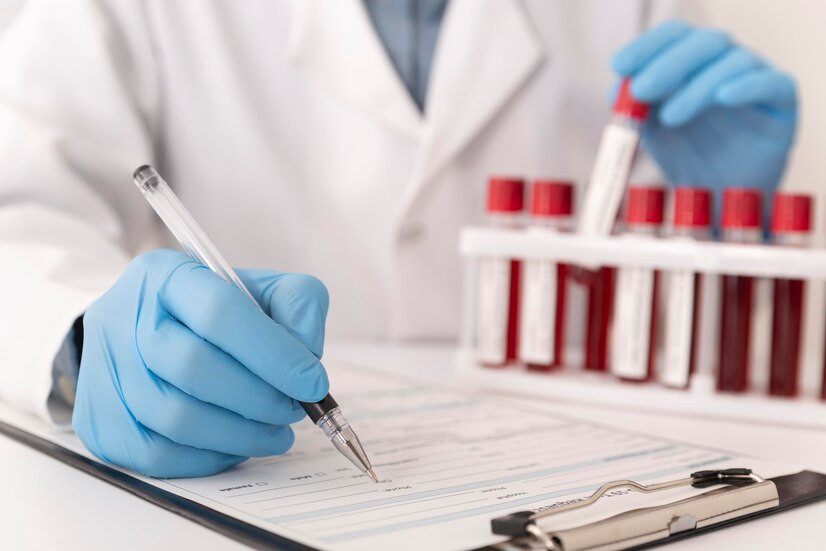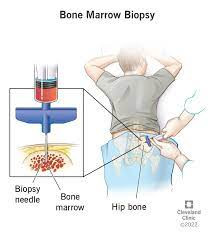Definition
A factor IX test is a blood test designed to evaluate the activity of factor IX, aiding doctors in determining how efficiently this protein functions. It is commonly included in a series of tests to identify the type of bleeding disorder a patient might have.
Factor IX is a protein essential for the blood clotting process, ensuring blood clots properly and minimizing excessive bleeding. The clotting factors, labeled with Roman numerals from I to XIII, work in coordination to form clots when bleeding occurs. A deficiency or dysfunction in any of these factors disrupts the clotting mechanism.
Factor IX is synthesized in the liver and collaborates with factor VIII to create a "net" that seals damaged blood vessels. A deficiency of factor IX results in hemophilia B, a condition predominantly affecting males.
Individuals with hemophilia struggle to stop bleeding due to the absence of adequate clotting substances. This can pose significant health risks, especially in cases of severe injuries.
Indications
Doctors utilize a factor IX test to diagnose blood clotting disorders and monitor treatment for hemophilia B. This test also helps identify abnormalities observed in other blood hemostasis tests, such as prothrombin time (PT) or partial thromboplastin time (PTT).
The test may be performed on newborns and repeated when they are six months old. In older children or adults, it is conducted if they exhibit unusual or extensive bruising or have a history of abnormal bleeding issues. While hemophilia is not curable, treatment can be initiated once the specific form of the disease is identified.
Contraindications
There are no contraindications or restrictions preventing individuals from undergoing a factor IX test. It is considered safe for all age groups and can be performed without risk.
Preparation Before the Test
No specific preparations are required before a factor IX test. It can be conducted at any time. However, consulting a doctor beforehand is recommended. Patients should inform the doctor of any medications or supplements they regularly take, as some medicines may need to be paused to ensure accurate test results.
Adequate rest and proper hydration are advised prior to the test, as these measures can facilitate the collection of the blood sample by making veins more accessible.
Test Procedure
The factor IX test involves collecting a blood sample from a vein, which is then placed in a specialized tube. Laboratory staff, equipped with gloves and personal protective equipment (PPE), carefully handle the process. The collected blood is analyzed using advanced laboratory equipment to determine factor IX activity.
Normal and Abnormal Values
The normal range of factor IX in the blood typically falls between 60-140 percent of the reference value. It is important to note that these values may vary slightly between laboratories due to differences in measurement methods or sample testing protocols.
Abnormal test results may be linked to the following conditions:
- Hemophilia B
- Disseminated Intravascular Coagulation (DIC): A disorder where blood clotting proteins become overly active.
- Fat Malabsorption: The inability to absorb sufficient fat from food.
- Liver Diseases: Conditions such as cirrhosis that affect liver function.
- Vitamin K Deficiency
- Blood Thinner Therapy
Results and Recommendations (Further Testing)
If the test results are abnormal, additional blood tests may be required to confirm a clotting problem or to compare results with other related tests. These include:
- Activated Partial Thromboplastin Time (APTT) Test: Identifies clotting issues associated with factor IX and other clotting agents.
- Prothrombin Time (PT) Test: Aims to detect blood clotting abnormalities.
- Complete Blood Count (CBC): Examines red blood cells, white blood cells, hematocrit, and platelet levels.
- Fibrinogen Level Test: Evaluates the role of fibrinogen in the clotting process.
- Clotting Factor Tests: Analyzes the levels and functions of various clotting factors.
Additionally, stool and urine samples may be tested to check for the presence of blood. For individuals concerned about hemophilia due to a family history, but who have not exhibited bleeding symptoms, a genetic test can identify the gene responsible for hemophilia in most cases.
Consult the Right Doctor
For adults, abnormal test results should be reviewed with an internal medicine specialist, who may conduct further tests or initiate therapy based on the diagnosis. In some cases, the specialist may consult a hematology expert for more in-depth discussions regarding the condition. For children, pediatricians handle abnormal test results and provide appropriate guidance.
Want to know information about laboratory, radiology, and other test results? Click here!
- dr Hanifa Rahma
Medscape - Factor IX Assay (2021). Retrieved 16 May 2023, from https://emedicine.medscape.com/article/2085317-overview.
Mount Sinai - Factor IX Assay Information. (2021). Retrieved 16 May 2023, from https://www.mountsinai.org/health-library/tests/factor-ix-assay.
Nemours - Factor IX Activity. (2021). Retrieved 16 May 2023, from https://kidshealth.org/en/parents/test-factor9.html.
Rochester University - Factor IX (Antihemophilic Factor B) (2021). Retrieved 16 May 2023, from https://www.urmc.rochester.edu/encyclopedia/content.aspx?contenttypeid=167&contentid=factor_ix.










